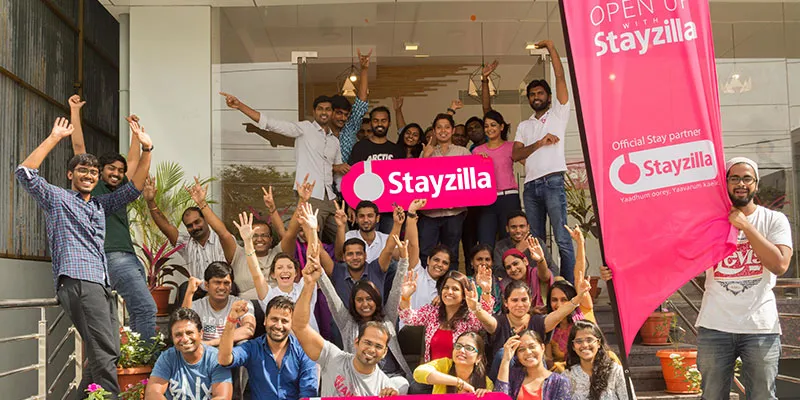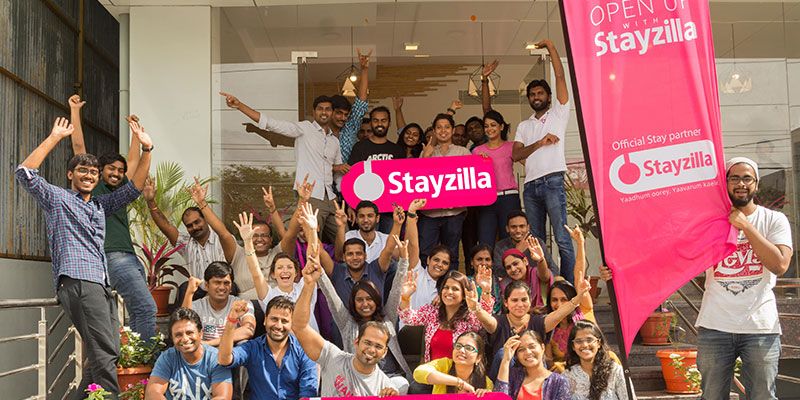The 12-day battle of Stayzilla and what it means to the startup world
These 12 days have been eye-opening for startups and the startup ecosystem on how there is a need for strong systems that help founders shut operations peacefully, without being easy targets.
It has been 12 days since Yogendra Vasupal, the Founder of Stayzilla, was taken into custody by the police. However, unlike most arrests, Yogendra's wasn't for a grievous crime like murder or theft. The sole reason for his imprisonment has been the spat between him and vendor Jigsaw Advertising's Aditya C.S.
The bail application, after much pushing and pulling at the sessions court, has finally been presented to a higher court. A hearing and its outcome are likely to be out by tomorrow. While we let the courts do their jobs, it is time to reflect on how these past 12 days have been an eye-opener for Indian startups.
The incident raises a number of questions. How do startups, especially the ones that are shutting down, manage vendor payments? Also, what backing or support do founders have in these cases? While Karnataka and Telangana are known to have strong ministers who support entrepreneurs, what about other states? Also, what protection will founders have in case of vendettas?
Don’t penalise entrepreneurship
A case that is a business dispute related to payments has been given a criminal hue. From day one, the case has been murky. While the founder hadn’t confessed, reports started floating around stating otherwise. What followed has been turned into a battle between the vendors and startup founders.
Earlier this month, Stayzilla put out a blog post that they would be discontinuing their operations. It came as a shock to most in the ecosystem as Yogendra, more popularly known as Yogi, has always been an affable entrepreneur, and everyone has a good word for him.
A business shuts down when the cash outflow is more than the inflow, and this is what seems to have happened with Stayzilla. And when a business shuts down, there are settlements that need to be made with the vendors and employees.
While Stayzilla claims to have settled Jigsaw Advertising’s payments, the latter claims otherwise. The main contention is that Stayzilla owes Jigsaw Advertising Rs 1.56 crore. Aditya also went ahead to claim that the Stayzilla founders had siphoned off the money.

Founder as a vulnerable target
Following this flew a series of arguments and counter arguments on what was really the issue. With the founder of Stayzilla in prison, there were few counter points that he could give. However, Rupal Yogendra, Yogendra’s wife, in her blog clarified these allegations with proof, especially with regards to Aditya's statement.
While there is no argument or doubt that vendors need to be paid, the question is - at what cost? Sharad Sharma, Governing Council Member, iSPIRT Foundation, who has been rallying the community behind the release of Yogi and ensuring that he gets a fair trial, believes the fight just isn’t restricted to one founder and a vendor. Vendors definitely need to be paid, but this is a disputed claim, and it needs to be resolved in the right manner. Sharad says,
“A founder, especially one who is winding down, is a vulnerable target, making him or her more susceptible to the different kinds of political goondaism out there. It is time that the entrepreneurs stand up for each other. Else they will be harassed no end.”
Most of these startups are in fact started by first-time entrepreneurs who come from middle-class backgrounds; they do not have the same backing as large family-run businesses, which makes them more vulnerable.
Get systems and processes in place
Today, with the growing number of startups, it is important to understand that eight out of ten startups will fail, and there need to be systems in place to help them scale. Sanjay Anandaram, startup advisor, told YourStory that in India, today, an overwhelming majority of founders are first-time entrepreneurs.
He added that while they know how to code and design a product, they don't know what a company is, what a board is, what compliance is, that they have to pay taxes, create a provident fund, and so on. There therefore need to be systems that protect these founders.
“Otherwise, entrepreneurship will die. Today’s tech businesses aren’t like the traditional businesses. Tech startups are a different ball game, and if you’re going to penalise failures with a criminal lawsuit as an action, why will anyone choose entrepreneurship?” asks Sharad.
There needs to be a distinction in ease of shutting shop for a tech business. The rules governing traditional businesses simply cannot apply. Tech entrepreneurship, as a design, is different. There need to be systems in place to aid the orderly shutdown of startups.









![[Exclusive] Vauld to seek 3-month moratorium extension as creditors panel explores bailout options](https://images.yourstory.com/cs/2/a09f22505c6411ea9c48a10bad99c62f/VauldStoryCover-01-1667408888809.jpg)

